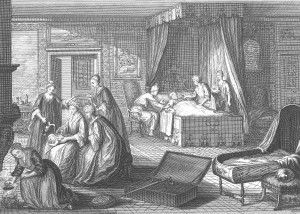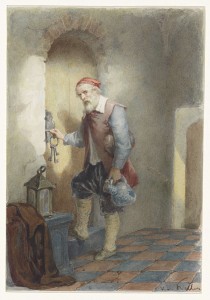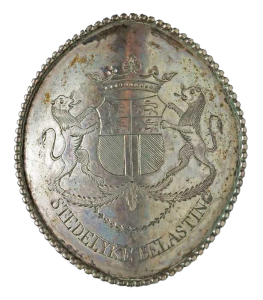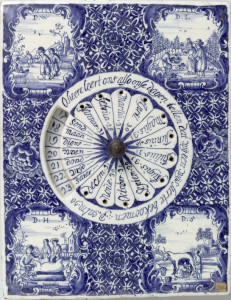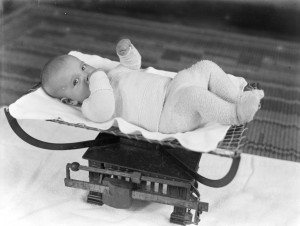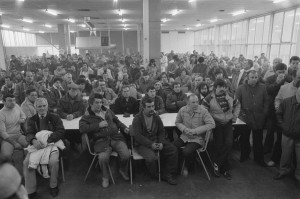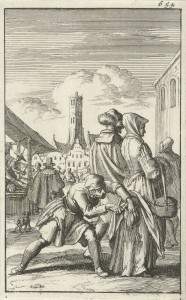A bibliotheek is a library. When doing Dutch research, keep in mind that most genealogical collections are held at archives, not libraries like in some other countries. … [Read more...]
Dutch term – Sub conditione
Sub conditione is a Latin term meaning "under the condition." You may encounter the term in Roman-Catholic baptismal records in cases when the midwife performed an emergency baptism. If the child lived, the child would be baptized again by the priest, under the condition that he was able to receive the baptism. Read more about emergency baptisms. … [Read more...]
Dutch term – Cipier
A cipier is a prison warden or jailer. If your ancestor was a cipier, you may be able to find more information about him in the administration of the prison. You may also find a cipier as the witness in a death record. In that case, your ancestor might have been in jail. You can check prison records to find out more information. … [Read more...]
Dutch term – Belasting
Belasting means tax. The high tax burden in the Netherlands was (and still is) one of the reasons for people to emigrate. Before about 1810, different regions had different taxes. And even in the nineteenth and twentieth centuries, there were taxes that we would not expect today. To name a few: Real estate tax Income tax Value-added tax Poll tax Marriage tax Burial tax Hearth tax Salt tax Spice tax Servant tax Bicycle tax Dog tax Cow tax Alcohol tax Tobacco … [Read more...]
Dutch term – Schrikkeljaar
A schrikkeljaar is a leap year. Before 1582, the entire region that is now the Netherlands used the Julian calendar, in which every fourth year is a leap year. Between 1582 and 1700, the different provinces switched to the Gregorian calendar, in which centurial years are not leap years except when they are divisible by 400. This corrected the length of the year by 0.002% compared to the Julian calendar. Read more about the introduction of the Gregorian calendar in a tale of two calendars. … [Read more...]
Dutch term – Gewicht
Gewicht is the Dutch term for weight. Since 1811, the Netherlands has adopted the metric system of kilograms. Before that, every region had their own weights. The Meertens Institute has a database of old measures and weights that can help to figure out just how much a pound weighed in a certain time and place. … [Read more...]
Dutch term – Archivaris
An archivaris is an archivist. In the Netherlands, archivarissen have a college or university degree in archival science; usually after first completing a related degree in history. Every level of government (municipality, province, nation) is required to transfer their older records to an archive which is headed by an archivist. Smaller municipalities often don't have their own municipal archivist but work together in larger Regional Historical Centers. Here are five things I learned from … [Read more...]
Dutch term – failliet and faillissement
Failliet means bankrupt; faillissement means bankruptcy. You can often find announcements of bankruptcies in newspapers, and you can then find the corresponding court case in the court records in the provincial archives. These may give you an insight in the business relationships of your ancestor. … [Read more...]
Dutch term – Oudoom and Oudtante
An oudoom is a great-uncle, an oudtante is a great-aunt; siblings of your grandparents. The literal translations are "old uncle" and "old aunt," respectively. … [Read more...]
Dutch term – Dief
A dief is a thief. You may found out that your ancestor was a thief, or the victim of a thief, in newspapers, court records, prison records or police records. … [Read more...]

